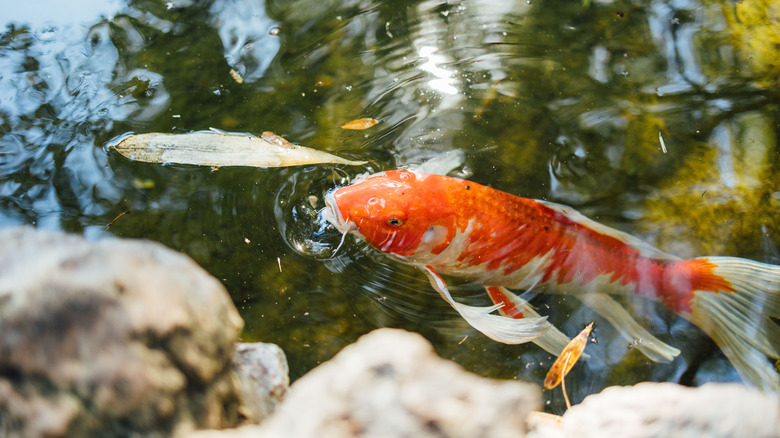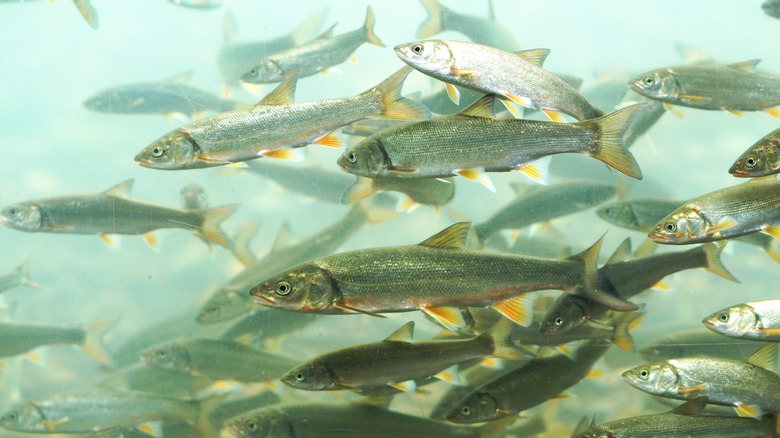Why You Should Add Fish To Your Natural Garden Swimming Pool
There is a lot you need to know before you buy a natural pool. Things like installation costs, long-term maintenance, and your local climate will all play a part. But what about fish? While it might sound odd, adding certain species of fish to your natural pool can offer incredible benefits including a more balanced ecosystem, cleaner water, and a reduced insect population. Additionally, fish can add an element of fun and visual interest to your natural pool, making it an even greater landscaping idea that will liven up your yard.
Of course, not all fish species will thrive in your pool, and each will have tradeoffs. Koi fish are a popular choice for their aesthetic appeal, and bottom-dwelling catfish can adapt to new areas with ease. If you're looking for something smaller, blue gill, minnows, and goldfish are also suitable options. Generally speaking, you will want to add fish that will help clean up algae and other waste to keep your water clean and fresh. Once you've settled on the right species and population numbers for your pool, you'll find these fishy friends can be rewarding in so many ways.
Fish keep algae and insects in check
With traditional pools, you'll likely invest hundreds into cleaning chemicals or have to hunt for alternative cleaners to reduce the amount of chlorine in your pool. With a natural pool, however, you can count on fish to do much of the heavy lifting in the cleaning department. The right types of fish will consume excess plant material while also producing essential nutrients that your underwater plants need to survive. This creates an effortless balance in the ecosystem.
Another major benefit of adding fish to your natural pool is their ability to reduce the amount of insects in and around the water. Mosquitos, for example, love still water. With fish in your pool, the water will be constantly moving, deterring those pesky blood-suckers from settling in. Many species will also happily chow down on any mosquito larvae that appear in the pool, making your backyard more enjoyable overall. Finally, having fish in your natural swimming pool allows you to enjoy watching from the banks and makes each swim a little more fun and interesting, especially when they start producing new schools of fish.
Potential drawbacks of adding fish to a natural pool
While adding fish to your natural pool offers several benefits, there are a few things to look out for as well. For example, fish need to expel waste just like all living things, and their excrement can lead to algae growth. If you add too many fish, it may be more than your pool's natural filtration system can handle. An overpopulation of fish can also contribute to a severe lack of zooplankton, which your aquatic plants need to survive. Underpopulation isn't ideal either, as too few fish won't be able to keep up with eating the algae and insects.
A landscaper who specializes in pools and water features can help you determine the right species and the number of fish you need for your pool. Generally speaking though, a good rule of thumb is to aim for roughly one six-inch fish for every 100 gallons of water in your pool. You should also consider which species of fish you want in your pool and if they are compatible with each other. Some species, like koi, produce notoriously high amounts of waste. Certain types of fish can also be more aggressive and may harass the smaller, more docile fish in your pool.


